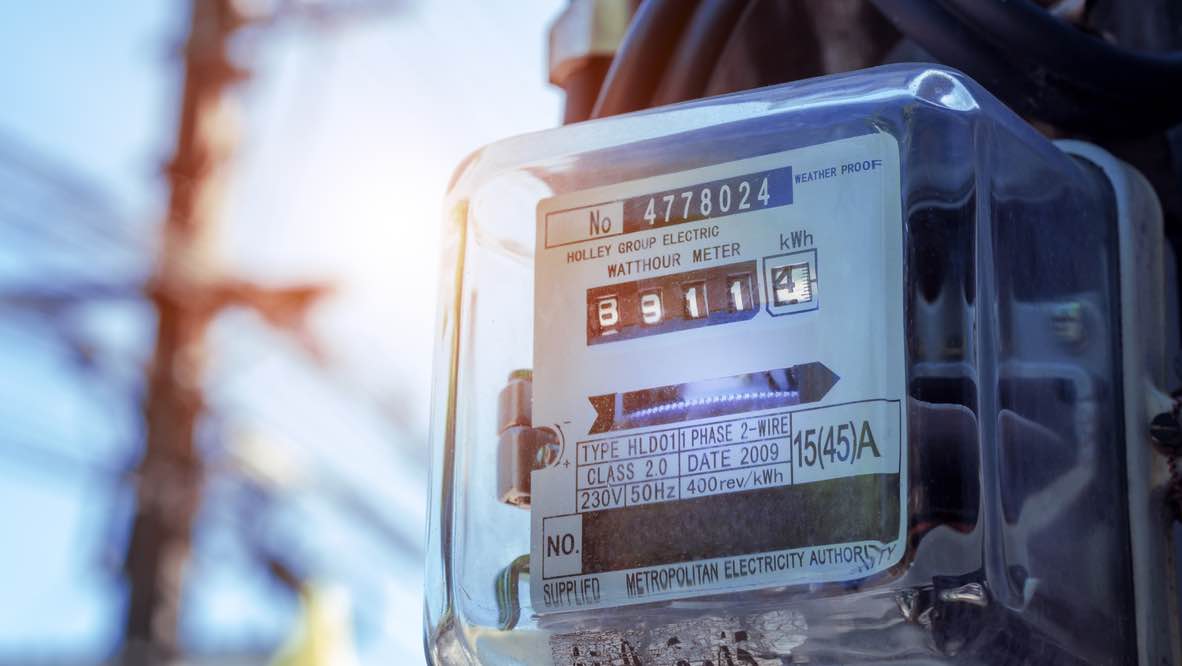
How to Save Money on Your Electric Bill
High energy costs can take a serious toll on your household budget. While it’s necessary to cool your house during the hottest part of the year and turn up the heat in the dead middle of winter, there are ways to conserve energy.
Going green and lowering your electric bill are simple–it starts by being mindful and making some small tweaks. In fact, here are 18 ways you can begin saving money today.
- 1. Get an Energy Audit
- 2. Use Cold Water to Wash Clothes
- 3. Install a Programmable Thermostat
- 4. Use Wool Dryer Balls
- 5. Don’t Heat Dry Your Dishes
- 6. Air Dry Your Clothes
- 7. Replace Air Filters Regularly
- 8. Insulate Your Home (and Garage)
- 9. Install a Dimmer Switch
- 10. Use Different Light Bulbs
- 11. Unplug Devices When Not in Use
- 12. Close The Curtains
- 13. Install Ceiling Fans
- 14. Clean Vents (And Keep Them Open)
- 15. Insulate Your Water Heater
- 16. Get Your HVAC System Inspected
- 17. Upgrade to Energy Star Appliances
- 18. Use Appliances During Off-Peak Times
- Which Method Will You Try First?
1. Get an Energy Audit
Your local utility company might offer a free home energy audit so take advantage of it if you can. That way you’ll be able to find out about any energy leaks and be able to use recommendations to help you cut back on your electricity usage.
2. Use Cold Water to Wash Clothes
Heating water to wash clothes can take a significant amount of energy. Besides, washing in cold water will still result in clean clothes.
While you’re at it, don’t stuff your washing machine full of clothes. If you don’t leave a bit of room in the washer it means that when you go to put your clothes in the dryer, then it could take longer for your clothes to dry, resulting in more energy usage.
3. Install a Programmable Thermostat
You do need to spend some money upfront, but consider a programmable thermostat an investment. You can set the temperature during the day or when you’re asleep so that you’re not wasting energy. Some even program themselves based on your daily routines or you can adjust it away from home using a smartphone app.
4. Use Wool Dryer Balls
Wool dryer balls are pretty inexpensive and are used to lower the time it takes for your clothes to dry in your dryer. They can also help you save money since they allow you to omit the fabric softener. Some people have used tennis balls or even aluminum foil instead.
5. Don’t Heat Dry Your Dishes
Using your dishwasher does mean you’ll need to use hot water to do its job. However, you don’t need to turn on the heated drying function–save your energy costs this way. Sure, your dishes can dry faster and have less water spots, but waiting a few more hours can do the same. That, or consider using a rinsing agent to prevent water spots while your dishes are drying.
6. Air Dry Your Clothes
It’s pretty common sense that using your dryer can take up a lot of electricity. If it’s a nice day outside and you have space, consider line-drying your clothes. You can even consider line drying your clothes by hanging them over your shower rod or any other creative solutions.
7. Replace Air Filters Regularly
Replacing your air filter helps your HVAC system running as efficiently as possible. Typically you’ll need to do so each month, though check the manufacturer’s instructions. If you think you’ll forget, set a reminder somewhere so you don’t forget.
8. Insulate Your Home (and Garage)
Things you can do include making sure to put weather stripping around doors and windows, installing insulation pads inside electrical outlets and installing storm doors.
9. Install a Dimmer Switch
Doing so means you’ll only use the amount of light you need, saving you money on your electric bill.
10. Use Different Light Bulbs
LED light bulbs last much longer than conventional light bulbs and use much less electricity. Save money on your electric bill and on light bulbs.
11. Unplug Devices When Not in Use
Even when something is turned off, it doesn’t mean it isn’t eating up electricity. Unplug items that you don’t use often like a phone charger during the day or a water kettle. You can plug these items into a power strip and turn that off when you’re not using these items.
12. Close The Curtains
The sun can heat up your home which can make your air conditioner run even harder to cool your home down. Consider closing the curtains to prevent that from happening. If you’re doing some remodeling, consider installing energy-efficient windows, tinted window film or smart windows that will darken whenever it’s light out.
13. Install Ceiling Fans
Sometimes the weather isn’t hot enough to warrant using your air conditioner. Instead, having ceiling fans can help cool your home during peak times without the need to use up a lot of electricity.
14. Clean Vents (And Keep Them Open)
Cleaning your air and dryer vent can help them run more efficiently. Think about it: if there’s a bunch of gunk in your vents, your air conditioner or dryer has to work a lot harder to push air in and out. It means more energy is used, therefore increasing your bill.
15. Insulate Your Water Heater
Insulating your water heater can prevent heat loss, lowering your bills. Purchasing an inexpensive item like an insulating jacket can help.
16. Get Your HVAC System Inspected
Cleaning your vents can only go so far if your HVAC system isn’t running well. To increase its efficiency, get it inspected and cleaned every year. The added perk is that you’ll have cleaner air in your home as well.
17. Upgrade to Energy Star Appliances
We’re not saying to replace everything all at one, but when it comes time to upgrade (like when an appliance breaks down), look for ones with the best Energy Star rating. That way you can still use your appliances normally but have the ability to save on electricity. In some cases, your state or local government will provide tax savings or deductions for doing so.
18. Use Appliances During Off-Peak Times
Some utility companies increase their usage prices during peak hours. To save money, run appliances like your washer and dryer later in the evening or during early mornings to take advantage of off-peak pricing. Contact your utility company to check what these times are, if any.
Which Method Will You Try First?
Making a few simple and low-cost changes can help you lower your electric bill–even more so if you try all of the above methods. You might need to spend a bit of money upfront, but the savings can more than make up for what you paid.


Article comments